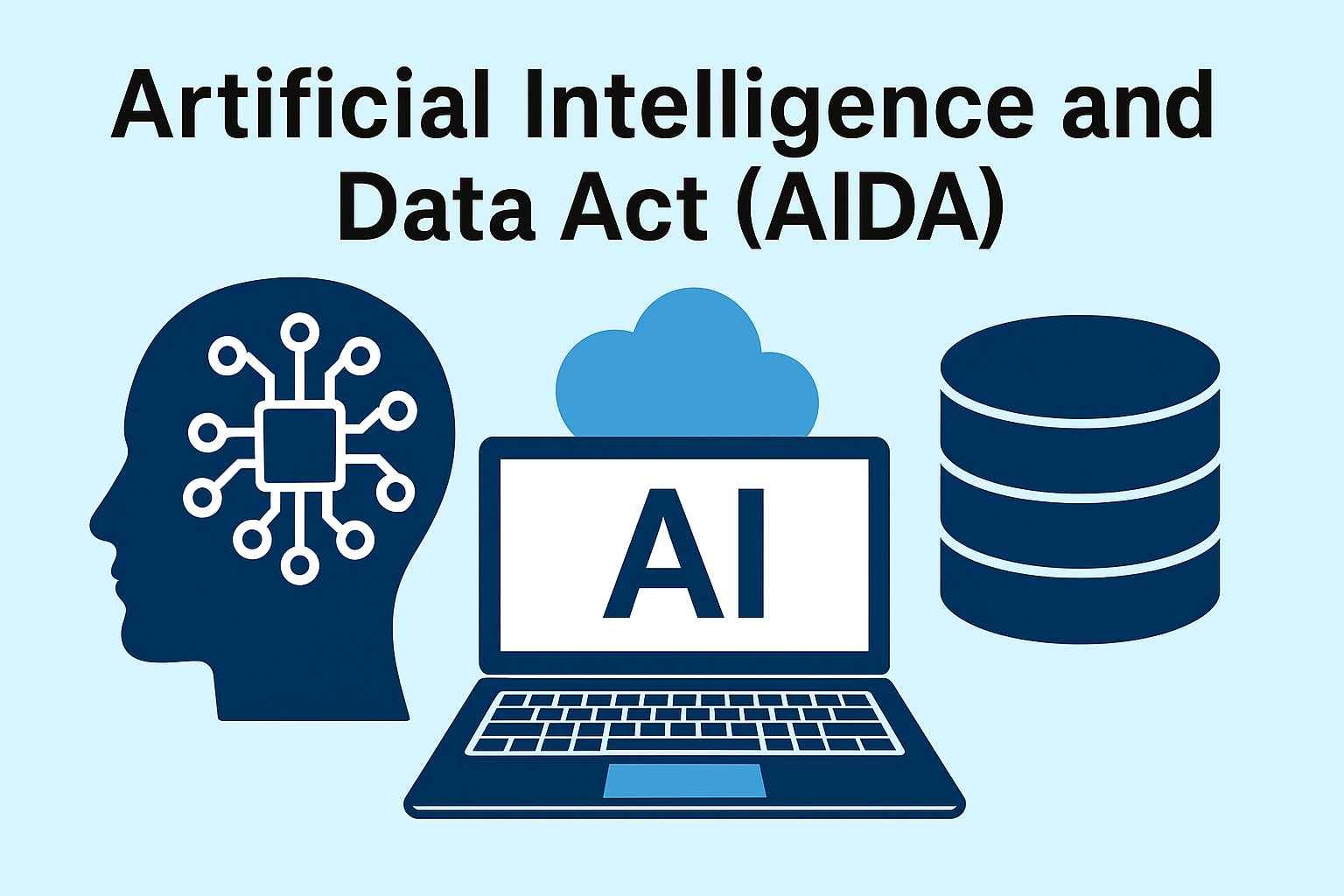On this page you will read detailed information about How India Can Regulate Artificial Intelligence Responsibly.
As a citizen of India, you have a stake in how artificial intelligence develops in your country. With great power comes great responsibility, and India finds itself at an important juncture with AI. Your nation boasts exceptional tech talent that gives it the potential to become an AI leader. However, thoughtful regulation is required to steer innovation in a direction that benefits society. India can draw lessons from other countries’ regulatory approaches while crafting policies tailored to its needs. There are risks to avoid and opportunities to seize. Your voice matters in determining the ideal balance of AI oversight. India’s AI future impacts you, and you can make a difference in shaping it responsibly.
The Need for Artificial Intelligence Regulation in India
Protecting Privacy and Data
AI systems require large amounts of data to function, and this data often contains sensitive personal information. India does not currently have a comprehensive data protection law, so citizens’ data privacy is at risk. Regulations are needed to ensure AI companies collect and use data ethically, with proper consent and safeguards.
India should follow the lead of the European Union’s General Data Protection Regulation (GDPR) and enact strict laws around data collection, usage, and storage. Regulations could mandate data minimization (only collecting data necessary for the task), purpose limitation (data used only for intended purposes), storage limitation (data not kept longer than needed), and consent requirements. Laws should also give citizens more control over their data through rights like access, rectification, erasure, and portability.
Preventing Bias and Unfairness
AI algorithms can reflect and even amplify the biases of their human creators. Regulations are needed to promote inclusive and fair AI that does not discriminate unfairly against groups or individuals. Laws could require companies to consider how their AI systems might negatively impact marginalized groups, conduct impact assessments, and make algorithms transparent and explainable.
India must ensure AI does not infringe upon the fundamental rights of citizens and should enact anti-discrimination laws specific to AI. Companies developing AI for critical areas like healthcare, education, and finance should be closely monitored to prevent unfair treatment. Audits and compliance checks will be necessary to enforce these laws.
Ensuring Safety and Accountability
As AI becomes more advanced and autonomous, it raises concerns about control, oversight, and liability. Regulations are needed to ensure AI systems are safe, controllable, and accountable. Laws could require human oversight and review of AI decisions in sensitive domains. They could also mandate “kill switches” to safely deactivate an AI system, and clarify liability in the event of an AI system causing harm.
India should follow guidelines set by the UNESCO International Council of Scientific Unions that call for human oversight and review of AI, as well as mechanisms to ensure a human can safely deactivate an AI system at any time. Regulations around liability and responsibility will provide accountability if an AI system causes damage or harm. Strict safety precautions and protocols should be put in place for any AI application that could put human life at risk.
In the previous post, we had shared information about What Is Phishing Attack? Recognizing and Reporting Suspicious Messages, so read that post also.
Key Principles for Responsible AI Regulation
To ensure AI is developed and applied responsibly in India, regulatory frameworks should be grounded in certain core principles. Fairness and transparency should be prioritized to gain public trust, while flexibility and oversight are needed to keep pace with rapid technological change.
Fairness
AI systems should be developed and applied in an unbiased, equitable manner. Discrimination based on gender, ethnicity, or other attributes should be prohibited. Regular audits can help identify and address unfairness. Companies developing AI should consider how their systems might negatively impact marginalized groups and design them to avoid disproportionate harm.
Transparency
It should be clear how and why AI systems make the predictions or decisions they do. Their training data, algorithms, and performance metrics should be available for review. “Black box” AI that even its creators cannot explain or understand should not be deployed for sensitive use cases like healthcare, education, or finance. Transparency builds accountability and trust in the technology.
Flexibility
India’s policies and regulations should be flexible enough to accommodate rapid progress in AI. They should focus on outcomes and principles rather than specific technologies. Strict or premature rules could stifle innovation or prevent beneficial applications of AI before they even emerge. Regular review and revision will be needed to update policies as technologies and their use cases evolve.
Oversight
There must be mechanisms in place to monitor how AI systems are developed and applied in practice. Companies, researchers, and users of AI technology should be accountable for ensuring its responsible use. Enforcement of laws and policies by regulatory agencies can help guide companies in the right direction and protect the public from irresponsible or harmful AI. Oversight may need to span borders for AI developed in one country but applied in another.
With these guiding principles – fairness, transparency, flexibility, and oversight – India can achieve the dual goals of stimulating AI innovation and upholding ethical values. Responsible regulation can help build public trust in AI and ensure its safe, fair and equitable development and use. Overall, a balanced and well-considered policy framework will enable India to benefit from the promise of AI while avoiding potential downsides.
Learning From Global AI Governance Models
As India develops its AI governance framework, policymakers can study successful models adopted by other countries. The EU’s AI regulatory approach focuses on trustworthy AI that is lawful, ethical and robust. Its proposed regulations aim to minimize risks from AI like bias and ensure accountability. India can adapt a similar ethical and human-centric approach in governing AI.
Guidelines on AI Trustworthiness
The EU published Ethics Guidelines for Trustworthy AI to promote transparency, diversity, non-discrimination and controllability in AI systems. India should issue similar guidelines to build accountability and oversight into AI development. Strict penalties and compliance mechanisms must back these guidelines.
Sector-Specific Regulations
The EU is proposing regulations tailored for high-risk AI applications like healthcare, transport, and education. India can take a staggered approach, first regulating sensitive domains where AI can have a direct impact on people’s lives and livelihoods. Lessons from these initial regulations can shape broader AI governance policies.
Independent Audits and Assessments
Under proposed EU regulations, high-risk AI systems will undergo mandatory conformity assessments by independent experts. India should institute a similar system of independent audits and reviews to verify AI systems meet requirements of explainability, accuracy and robustness before deployment. Audits will boost overall trust in AI and address fears of job losses and lack of transparency.
Flexible and Adjustable Policies
AI is a fast-evolving field, so governance policies must be flexible to keep up with technology changes. The EU’s proposed regulations aim to strike a balance between encouraging AI innovation and managing risks. India’s policies should also be adjustable to avoid stifling the growth of its AI industry while safeguarding the public. Regular reviews and amendments to policies can help achieve this balance.
By learning from AI governance models in the EU and elsewhere, India can develop prudent regulations to foster responsible AI development and protect people. Strong and flexible policies, guided by ethical principles, can build trust in AI and help India become a leader in emerging technologies. Overall, a human-centric approach should drive India’s AI regulations.
Suggested Areas of Focus for India’s AI Regulatory Framework
As India develops its national AI regulatory framework, several areas should be prioritised. The framework should focus on data privacy and protection, algorithmic transparency and accountability.
Data Privacy and Protection
AI systems rely on access to large amounts of data, so regulations are needed to protect people’s personal information and privacy. India’s framework should establish guidelines around data collection, usage, and storage. Consent should be required for collecting and sharing personal data. Data should be anonymized and encrypted to prevent misuse. Strict penalties should be in place for companies that violate data privacy laws.
Algorithmic Transparency and Accountability
AI algorithms and systems can reflect and even amplify the biases of their human creators. India’s regulations should require transparency into how AI systems work, including providing details on the data used to train the systems and the logic behind their decisions. Regulations should also establish mechanisms to audit AI systems for unfairness and inaccuracy. Companies deploying AI should be accountable for their systems and subject to penalties if they are found to be unfair or deceptive.
India’s AI regulatory framework would also benefit from tackling issues like AI system security and manipulation. Comprehensive regulations, combined with government oversight and industry collaboration, can help ensure AI progress aligns with India’s democratic values and benefits the public good. With strong, balanced regulation, India has an opportunity to become a leader in responsible AI development.
The framework suggested focuses on establishing guidelines and accountability around data and algorithms which are integral components of AI systems. Regulations in these areas would help build trust in AI, address concerns about unfairness and bias, and mitigate risks from malicious use of data and algorithms. A regulatory framework centered on data privacy, transparency and accountability lays the groundwork for responsible AI progress.
Building Capacity for AI Governance in India
For India to responsibly regulate AI, it needs to build internal capacity in several key areas. First, India requires expertise in AI itself. It needs researchers actively working on machine learning, computer vision, natural language processing, and robotics. India has many prestigious technology institutes, but more funding and incentives are needed to attract and retain top AI talent.
Developing Policy Expertise
India also needs experts who understand AI policy issues, like privacy, bias, job disruption and autonomous weapons. Policymakers with expertise in technology law and ethics can help draft laws and regulations that balance AI’s benefits and risks. India should cultivate this expertise by funding interdisciplinary research on AI policy, and recruiting technologists and ethicists to work in government.
Educating Government Officials
Government officials, especially legislators and regulators, need to better understand AI to make informed policy decisions. Educational curricula on AI’s capabilities, limitations and impact should be developed to train officials. Workshops and public demonstrations can also build familiarity. With knowledge, officials can avoid reactionary policies, ask insightful questions and make prudent, far-sighted rules.
International Collaboration
India should pursue international partnerships on AI governance. By participating in forums like the OECD AI Policy Observatory and UNESCO’s work on AI ethics, India can learn best practices, harmonize policies across borders and ensure its values are represented in global AI discussions. Collaborating on open data and benchmarks can also strengthen India’s AI ecosystem. Such alliances will amplify India’s influence and benefit both its economy and society.
To govern AI responsibly and sustainably, India must invest in building a robust knowledge and policy infrastructure. With skilled experts, informed officials and strong international ties, India can lead the responsible development of AI and gain from its promise. Policymaking is a continuous process of learning and adapting. By developing expertise and participating in global efforts, India will create a governance system flexible enough to benefit its people as AI advances.
Conclusion
You have seen how India can pave the way for responsible AI regulation. With thoughtful leadership and cooperation between government, industry, and civil society, India is poised to set a global example. By establishing clear ethical principles, enforcing transparency, and empowering citizens, India can harness AI’s benefits while mitigating risks. The choices India makes today will resonate for generations. India now has an opportunity to secure an AI-powered future that reflects shared values of diversity, empowerment, and human dignity. With courage and wisdom, India can write the next chapter in the story of technology serving humanity.
Disclaimer
The information and services on this website are not intended to and shall not be used as legal advice. You should consult a Legal Professional for any legal or solicited advice. While we have good faith and our own independent research to every information listed on the website and do our best to ensure that the data provided is accurate. However, we do not guarantee the information provided is accurate and make no representation or warranty of any kind, express or implied, regarding the accuracy, adequacy, validity, reliability, availability, or completeness of any information on the Site. UNDER NO CIRCUMSTANCES SHALL WE HAVE ANY LIABILITY TO YOU FOR ANY LOSS OR DAMAGE OF ANY KIND INCURRED AS A RESULT OR RELIANCE ON ANY INFORMATION PROVIDED ON THE SITE. YOUR USE OF THE SITE AND YOUR RELIANCE ON ANY INFORMATION ON THE SITE IS SOLELY AT YOUR OWN RISK. Comments on this website are the sole responsibility of their writers so the accuracy, completeness, veracity, honesty, factuality and politeness of comments are not guaranteed.
So friends, today we talked about How India Can Regulate Artificial Intelligence Responsibly, hope you liked our post.
If you liked the information about How India Can Regulate Artificial Intelligence Responsibly, then definitely share this article with your friends.
Knowing about laws can make you feel super smart ! If you find value in the content you may consider joining our not for profit Legal Community ! You can ask unlimited questions on WhatsApp and get answers. You can DM or send your name & number to 8208309918 on WhatsApp










